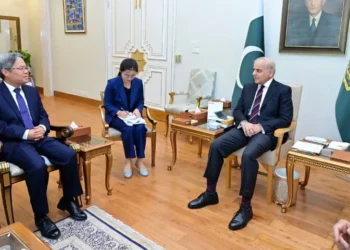During a keynote speech at the 13th Energy Storage International Conference & Expo (ESIE) in Beijing, Pakistan’s Federal Minister for Energy, Awais Ahmad Khan Leghari, urged enhanced collaboration in clean energy initiatives between China and Pakistan, emphasizing energy storage systems, smart grid modernization, and electric vehicle (EV) infrastructure. The conference, organized by the China Energy Storage Alliance (CNESA), served as a platform for Leghari to outline Pakistan’s strategic priorities in transitioning to renewable energy.
Leghari highlighted Pakistan’s urgent requirement for reliable storage infrastructure to balance its power grid amid rapid solar and wind energy adoption. He identified Battery Energy Storage Systems (BESS), Pumped Storage Hydropower (PSH), and rural microgrid deployments as critical areas for development. The minister strategically invited Chinese companies to invest in joint ventures aimed at localizing battery production, smart meter manufacturing, and advanced grid management technologies.
“Pakistan provides not only a skilled labor force and government-backed incentives but also access to a vast market exceeding 30 million metering points,” stated Leghari. He further underscored opportunities in EV charging networks, battery recycling ecosystems, and smart grid-integrated charging solutions. With Pakistan’s ongoing transmission network expansion, he stressed the necessity of incorporating battery storage into grid planning to ensure stability.
To accelerate partnerships, Leghari detailed government measures such as simplified regulatory frameworks, tax benefits, and prioritized land allotments in designated energy zones. Describing the conference as a “beacon of possibility,” he reiterated Pakistan’s resolve to deepen ties with China. “Together, we must innovate in clean technology—not solely for our countries but for the broader region’s sustainable future,” he declared.
The minister’s address concluded with a call for shared advancements in renewable energy infrastructure, positioning Sino-Pakistani collaboration as pivotal to regional energy security and climate resilience.
















